Événement Virtuel
Unleashing the power of youth through Education: Sustainable solutions for a Better Future | RFSD2023

28 Mar 2023
10:00–12:00
Lieu: Online | Webex
Organisation: Bureau régional du PNUE pour l'Europe, Commission économique pour l'Europe des Nations Unies, Geneva Environment Network
This Side Event to the 2023 Regional Forum on Sustainable Development for the UNECE region, served as a platform to connect the different organizations and networks working in the areas of education and youth development, and further strengthen the engagement of youth from the European region to support the full implementation of the 2030 Agenda through the power of education for sustainable development.

About this Event
2023 marks an important milestone for the 2030 Agenda, representing the halfway mark for its implementation, and to continue building the momentum to recover from the coronavirus disease (COVID-19), and accelerate the Decade of Action and Sustainable Solutions for the full implementation of the 2030 Agenda for Sustainable Development at all levels. It is also the European Year of Skills.
In addition of being the halfway mark, 2023 was meant to be the year to organize the ‘Summit of the Future: Multilateral Solutions for a Better Tomorrow’ in order to better respond to humanity’s most serious and pressing challenges – ranging from coronavirus to war, climate change, biodiversity loss, pollution, human rights – challenges that can only be solved by working together to make life better for everyone, rebuilding trust, to protect the planet, and to think for the long term, to deliver more for young people and succeeding generations. These are elements captured in the UN Secretary-General’s Our Common Agenda report and his vision on the future of global cooperation.
The specific focus on meaningful, diverse, and effective youth engagement both within and outside the UN is crucial for the full implementation of the 2030 Agenda, and the transition to climate-neutral society and economy both an urgent challenge and an opportunity to build a better future for all. Engaging young people in decisions that affect them is not just a matter of right, it is a matter of principle
Young people play a major role in articulating the social, economic, and environmental dimensions of sustainable development and to respond to current and future challenges. As leading innovators and knowledge creators, young people have proven time and again how crucial they are to social change notably through youth-led research and action. During COP27, Youth representatives and Ministers of environment and education came together to address young people’s needs and demands on climate change education, and the Greening Education Partnership was launched as a concrete global mechanism for mainstreaming climate change education.
As part of the UN Secretary-General’s Our Common Agenda, the Transforming Education Summit set the tone for the necessary skills, training, and lifelong learning. Almost all the serious and most pressing global challenges listed in the UN75 declaration A/RES/75/1 can be tackled by investing in education. We must elevate education to the top of the global political agenda and to mobilize action, ambition, solidarity, and solutions to bring about profound changes in the world.
This side event to the 2023 Regional Forum on Sustainable Development for the UNECE region built on the outcomes of key global and regional commitments made since the RFSD2022 and how they can be used to strengthen and accelerate the implementation of the 2030 Agenda through the active participation of young people and the education for sustainable development network. These include, the UN Transforming Education Summit, the Ninth Environment for Europe Ministerial Conference, the Third High-level Meeting of Education and Environment Ministries, the European Year of Youth 2022, and Climate Change Conference (COP 27) and UN Biodiversity Conference (COP15) Youth summits.
This event served as a platform to connect the different organizations and networks working in the areas of education and youth development, and further strengthen the engagement of youth from the European region to support the full implementation of the 2030 Agenda through the power of education for sustainable development.
Speakers
By order of intervention.

Sylvie MOTARD
Acting Director, Europe Office, UN Environment Programme
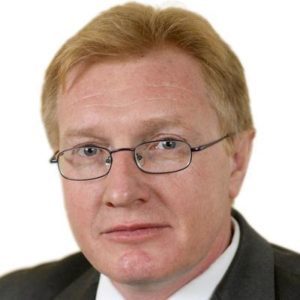
Marco KEINER
Director, United Nations Economic Commission for Europe
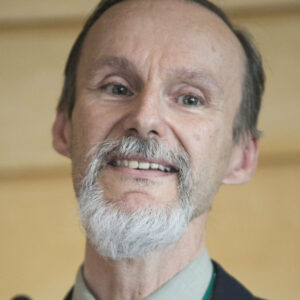
Bernard COMBES
United Nations Educational, Scientific and Cultural Organization (UNESCO)

António MARQUES PINTO
Association of Young Doctors of Portugal

Jessica GILL
UN Youth Delegate for Ireland 2022/23
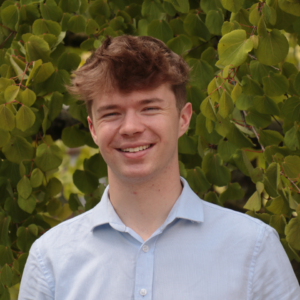
David GILES
UN Youth Delegate for Ireland 2022/23

Simon HERTELEER
Coordinator, UNECE ESD Youth Platform

Vladislav KAIM
UN SG’s Youth Advisory Group on Climate Change
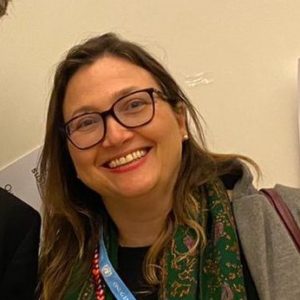
Diana RIZZOLIO
Coordinator, Geneva Environment Network

Jean SERVAIS
United Nations Youth Delegate for Sustainable Development, Belgium

Elena MIRON
President of the Youth Council of Romania, Youth Ambassadro for Sustainable Development, ESD Youth Representative
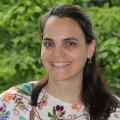
Emily MORRIS
The Brookings Institution, Center for Universal Education

Samia KASSID
World Future Council

Jasmin LANG
Fridays for Future Austria
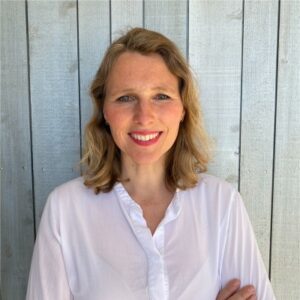
Luise HEIDENREICH
Co-Head Education and Learning, Climate-KIC
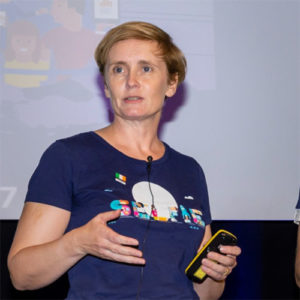
Deirdre HODSON
European Commission
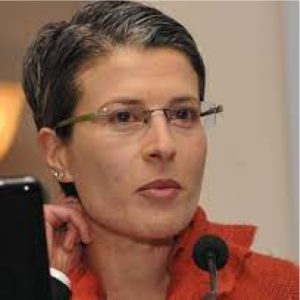
Aravella ZACHARIOU
Chair of the UNECE Steering Committee for ESD
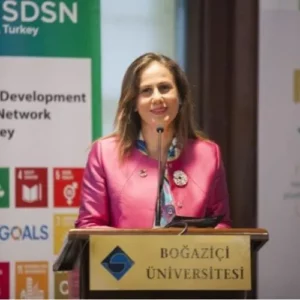
Bahar ÖZAY
Coordinator, Sustainable Development Solutions Network Türkiye (SDSN)

Wondwosen ASNAKE KIBRET
Policy and Partnerships Coordinator, Europe Office, UNEP | Moderator
Summary
Welcome and Introductory Remarks
Wondwosen ASNAKE KIBRET | Policy and Partnerships Coordinator, Europe Office, UNEP | Moderator
- The work being done to include young people in sustainable development, whether it is at the UN or the country level, is disappointing from their point of view. There’s a big trust deficit when it comes to what we say and do.
- Today’s panel discussion serves to support addressing short-term thinking and decisions-making and leads us into the application of a long-term perspective.
- In alignment with the Summit of the Future called by the UN Secretary-General, the goal of this event aims especially at responding at one of its twelve recommendations: the one about future generations. By discussing and showcasing what we are doing for young people and how we ensure that programs, initiatives, and policies are in solidarity with the interests and vision of the younger population, we work towards meaningful, diverse, and effective youth engagement in all sectors.
- Meetings like the Transforming Education Summit have been instrumental in showing how to build the skills, training, and lifelong learning needed for young people to face the future without fear and have a positive impact on the planet.
- We hope this is the first of many discussions to further explore how we can collectively deliver for young people.
Marco KEINER | Director, United Nations Economic Commission for Europe
- Since 2005, the UNECE has been hosting an inter-governmental process, the UNECE Strategy for Education for Sustainable Development , which aligns with the global efforts led by UNESCO.
- We also cooperate closely with UNEP on the implementation of the ESD Agenda in the region and the existing European, Mediterranean, and other regional initiatives on ESD.
- In the past few years, education and environment authorities from our region have been working together on developing a strategic document for the implementation of the UNECE strategy for ESD up to 2030 for the whole region.
- As a result, the new framework for implementation of the strategy for ESD from 2021 to 2030 was recently adopted at the Third High-Level Meeting of Education and Environment Ministers that took place last October during the 9th Environment for Europe Ministerial Conference in Nicosia, Cyprus. This new framework outlines concrete actions to be taken in the next decade and addresses the four priority areas and assigns special importance to the role of youth.
- Along with the new framework, the Nicosia Ministerial Statement on Education for Sustainable Development was adopted, focusing on the special role that education must play in addressing the unprecedented challenges faced by our planet and all layers of our societies.
- The Nicosia Ministerial Statement highlighted the central role of youth as a catalyst for change to create a better and more resilient future, and the importance of actively empowering and engaging youth in formulating and implementing sustainable development policies and practices.
- We need to make significant efforts to seize the extraordinary opportunity for global and regional multi-stakeholder collaboration offered by the implementation of the 2030 Agenda and its Sustainable Development Goals.
- Our focus should also be on strengthening and accelerating the implementation through the empowerment of young people and their active participation in the Education for Sustainable Development network.
Bernard COMBES | United Nations Educational, Scientific and Cultural Organization (UNESCO)
- Within UNESCO’s Education for 2030 Framework and Roadmap, the two priority areas I am in charge of are accelerating solutions at the local level, and mobilizing and engaging youth.
- Last September at the Transforming Education Summit, a youth declaration on transforming education was presented and included demands and recommendations for countries to follow, notably in terms of ensuring that climate change education is present and of quality.
- Unfortunately, around the world, climate change will increasingly be included in curricula and educational programs, but its delivery is often not satisfying.
- UNESCO conducted a survey last summer and asked 17,000 young people from all over the world their opinion on the climate education they were receiving or had received while in school.
- The majority responded that it left much to be desired; 70% said that they could only explain climate change’s broad principles, or they know anything about it because of lacking formation on the topic.
- Participants pointed out that they felt their teachers should be better supported and trained to teach climate change and sustainability issues.
- They also came up with a total of 8 demands, the most important ones being granted climate change, environmental sustainability education, and for these to be contextualized to their geographic local area. According to the respondents, sustainable education should be more hands-on, action-oriented, engaging and interactive.
- According to a survey done before the COVID pandemic by the EU Barometer survey, asking young people what they thought about their schools, education, and training that should be offered:
- almost 50% said schools should prepare young people for employment;
- about 45% said schools should give everyone a chance to succeed and have access to equal opportunities;
- around 40% said schools should promote creativity, adaptability, and entrepreneurship;
- about 30% said schools should promote physical and mental wellbeing and prepare young people to be active citizens on democratic societies or promote personal development;
- about 25% of them thought schools should promote social skills and build friendships.
- The results from this survey share many similarities with UNESCO’s survey. There needs to be a change in how education is delivered and what it delivers. It’s not so much a question of unleashing the power of youth as it is a question of providing opportunities, spaces, and environments that allow youth to demonstrate their power.
- Our institutions are still focused on the idea that we need to mobilize, engage, and discuss with youth, but yet we have not truly given them the space to do that.
Engagement of youth in SD policies (lessons from community/organizational involvement)
António MARQUES PINTO | Association of Young Doctors of Portugal
- The Association of Young Doctors of Portugal is the official organization that ensures young doctors contribute to the European environmental process. This include ensuring that young people’s priorities are recognized and represented across all member states at the national level. We also support and facilitate young people’s participation in processes aimed at achieving a healthy and sustainable environment.
- Environmental health is an expanding area of knowledge, with increasing body of evidence linking the environment to human health. As a young medical doctor, I face the direct consequences of environmental risk factors. These include air pollution, environmental tobacco smoke, radiation, chemicals, ambient temperature, noise, and climate change, among others.
- The World Health Organization estimates that more than 12 million global deaths, representing almost 25% of all deaths, can be attributed to environmental factors. Air pollution and second-hand smoke are responsible for 52 million lower respiratory diseases every year, which represents 45% of global cases. Diseases related to air pollution, chemicals, and second-hand smoke are responsible for 119 million cardiovascular diseases each year, 49 million cancers, and 42 million chronic respiratory diseases.
- Young people are aware that they will bear the brunt of the climate crisis: over 77% of people between 17 and 19 years old in Japan are aware of global warming risks, and in the United States, a survey found that 61% of people aged between 18 and 44 believe climate change will have significant impacts in their lifetime. In contrast, only 29% of those aged 55 and older agreed with this assertion.
- Young people are not only victims of climate change, but they are also valuable contributors to climate action. They are agents of change, entrepreneurs, innovators. Young people are scaling up their efforts and using their skills to accelerate climate action.
- When it comes to decision-making, young people often lack a seat at the table. Fortunately, in Europe, we have been recognized as a stakeholder and from that moment, our work has been highly focused on engaging young people in the process.
- To engage youth in ESD we try to enhance their skills, teaching them the technical, social, and emotional skills necessary to thrive in negotiation processes. At the same time, we support youth-led solutions, by trying to influence governments, businesses and investors to back youth-led solutions to climate change through grants, venture capital, debt financing, etc. This helps in the development and promotion of innovative solutions by young people, increasing the scale of sustainable development policies and actions.
- Above all, we give young people a seat at the table. Youth inclusion should not be an afterthought. Effective climate action must be inclusive.
- For a most meaningful youth engagement, we should encourage and support the institutionalisation of mechanisms of participation by promoting and supporting inclusive procedures that ensure representativeness and address barriers related to systemic and structural inequalities, for example. We should ensure availability and access to knowledge and financial resources for youth participation. We should encourage youth self-perception of empowerment. Furthermore, we should ensure culturally sensitive participation intervention and promote transparency of outcomes of youth participation, assess the positive impacts of youth empowerment and well-being, and promote the operationalization of intergenerational equity.
Jessica GILL & David GILES | UN Youth Delegates for Ireland 2022/23
David GILES | The UN Youth Delegate Programme allows each member state to choose how to structure funds and the level of responsibility given give to youth delegates. Ireland appointed us with a lot of responsibility and opportunities to amplify the priorities of young people. Youth Delegates are given a great opportunity to learn from one another and to benefit from the exposure to multinational spaces. Joining this programme has been an opportunity to bring the youth voice in a very authentic way into the United Nations space.
Jessica GILL | In Ireland, the Youth Delegate Program is coordinated by the National Youth Council of Ireland and the Department of Foreign Affairs, and funded through IrishAid. Our main responsibilities are promoting the sustainable development goals nationally and representing Youth in Ireland on the international stage. We have delivered Ireland’s national statements on social development at the UN General Assembly Third Committee and attended the Transforming Education Summit. I attended the Commission on the Status of Women and David attended the World Food Forum in Rome. We’ve organized high-level side events of experts from the UN and provided the youth voice in bilateral meetings. The focus of our mandate as Youth Delegates very much connects to the theme ‘unleashing the power of youth’, which something that we strive to do on a day-to-day basis.
David GILES | Involvement should be done holistically in every facet of society, including areas that may be contentious or complex. We work with numerous stakeholder groups, and our primary goal is to encourage young people to care about sustainable development and SDGs and to see the impact we all can have on this globalized world and the value of multilateral partnership.
Jessica GILL | We also engage with educators, asking them to integrate education for sustainable development and global citizenship education into their classrooms. We have spoken to 150 educators and principals, encouraging them to create a space for young people to engage in climate action. We see the value in using social media to empower young people. It’s important to use quick snippets of information and user-friendly language to get young people engaged and to ensure they can understand and join the conversation, to use targeted ads on platforms so all young people see our messages, not just those who seek them out. For true youth engagement, we must rethink our communication channels and include young people in the Agenda 2030.
David GILES | We also work with the Irish government with their youth participation frameworks to expand the opportunities available for young people and engage them on different issues and ensure the quality of these opportunities. A prime example of this, is our engagement with the Second National Youth Assembly on Climate, where the government brought together young people from across the country with different ideas and proposals for addressing climate change on a national level. Jessica and I acted as independent observers, our role was not bringing forward ideas but to make sure that the space provided was conducive to young people wanting to express their opinions, feeling they could do it freely, and ensuring that those opinions were not altered or changed when they’re brought into the policy-making spaces. We hope that the Irish government and other governments will see young people as experts in their own lived experience and respect them in that capacity.
Jessica GILL | The Voluntary National Reviews (VNR) is a SDGs progress report. We have been given the opportunity to write a youth chapter in Ireland’s VNR. It’s Ireland second VNR and the first time any country has had a full youth chapter solely written by young people. In writing the youth chapter, we have some key priorities. Firstly, we want to ensure it accurately reflects the priorities of young people. We hope that it is honest, critical, and constructive. We also hope that it can be understood by young people to ensure they are fully engaged in this process. We want these chapters to be taken seriously by policymakers and have a tangible impact, with reasonable follow-up to the asks and suggestions present in the chapter.
We also our outputs will set an example for other countries and highlights the importance of including a youth voice in a document as significant as the VNR. In our youth chapter, we have three main themes: building back after COVID-19, leaving no one behind, and highlighting the challenges and supports for young people to engage with the SDGs. Before starting to write this chapter, we attended the National Stakeholder Forum, which gathered people from all different parts of society and those who are traditionally left behind. This inspired us to host a consultation with the same principles.
David GILES | Prior to hosting the consultations, we decided to call upon a Youth Advisory Group, composed of 8 young people from different national youth organizations. A youth lead process for us should go beyond our mandates but include and benefit from the support of other young people. Those who participated and supported the organization of the event took ownership of the process. We had a good balance of gender and we also made a conscious effort to have representation from minority groups in the room, including young people from migrant and asylum seeker communities, as well as young people with disabilities. This video offers an insight into the process.
Jessica GILL | From our consultation meeting with young people it emerged that SDGs and sustainable development can be an abstract concept for many young people, and global citizenship education and education for sustainable development can help bridge that gap. We saw the importance of non-formal education and how bringing a global lens to youth work can also help young people to understand how local issues are connected to global issues. In terms of formal education, a lot can be done to help young people learn about sustainability. In Ireland, a subject called Climate Action and Sustainable Development was introduced at secondary school level. A key aspect of sustainable development is that it must be sustained. We need to ensure future generations have the knowledge, skills, and passion to continue to strive for meaningful change. Youth engagement is not an SDG itself, it needs to be mainstreamed throughout all the SDGs.
David GILES
Key takeaway messages
- Invest in young people with education and structured participation, as this investment in the future is essential in the sustainable development process.
- The needs and visions of young people and younger generations may differ from those of older generations, and they need to be incorporated into future plans for everyone’s benefit.
Jessica GILL | There is a lot of strength in a potential UN Youth Office, as it could ensure greater participation of young people at the UN. We hope that by 2030, all countries engaging in the VNR process have a youth chapter, which allows young people to accurately reflect their priorities. Beyond the national level, we need to continue bringing young people into multilateral spaces, having them as panelists for side events, briefers to the Security Council, and advisors on issues where they have expertise. Participation should not be limited to topics related to youth, but on all issues that require multilateral partnership.
Simon HERTELEER | Coordinator, UNECE ESD Youth Platform
- In terms of lessons from community and organizational involvement of youth in sustainable development policies, the common approach and vision perceive young people are an untapped resource with incredible potential.
- Despite years of efforts to mobilize this group both from organizations and from the youth themselves, it is important to remember that youth are not a homogeneous group. Talking from my experience as a young activist since the age of twelve, there are different stages of youth engagement.
- Participation through the youth engagement movement is not new and yet it still seems we are only at the starting point in many fields and organizations as the exploration of the potential of youth engagement is still in its infancy.
- Sustainable development is only possible through long-term investments, which require time and money. There is no magic recipe to yotuh engagement, but with the right combination of effort and inclusion, we can create that can be quite useful.
- The investment in youth engagement should be perceived by governments as infrastructure investment. If done correctly, it can provide incredible opportunities but on the contrary, they can also be seen as a hazard for governments, organizations and young people. This is the case when youth engagement is understood as an abstract topic and involves tokenism and manipulation, hampering efforts.
- The demands put forth by youth have not changed in over twenty years. Young people think about their futures and want to act today about it. The problems of not acting today are currently being seen on many fronts, especially through the effects of climate change worldwide. People for whom acting today is especially important are those who have been disproportionately affected by years and years by inaction, like young people, women, girls, refugees, and migrants, among others.
- To change this, it is necessary to recognize the agency of the various groups, the right to self-organize and to engage in the decision-making process and move away from the idea that young people are unable and, or unwilling to be engaged in decision-making processes because these are complex. What should be recognized instead is that organizations are still unwilling to change their way of working to include young people.
- Best practices and lessons from the organizational involvement of youth should be at the forefront of this change.
- The UNECE ESD Youth Platform was set up a couple of years ago to provide input to the UNECE steering committee. The mandate initially given to this group was the development of future strategies that reflect what young people want. These are currently in development. The way we proceeded was by looking at the existing text on young people and mapping out the different youth engagement possibilities within the system.
- Although governments and organizations do not realize it, engaging young people is essential as they represent a large portion of communities and are present as a big group in social structures such as schools, universities and as working professionals. Not listening to their voices, part of the picture on how to create effective strategies is missed.
- When talking about youth engagement, is also important to understand why and why not young people are involved. Youth engagement should not be seen as ‘us versus them’, but rather about ‘us together’ working towards the sustainable development of humanity.
- As young people are the future of the workforce, which will take care of older generations, establishing partnerships with them is fundamental, and therefore their inclusion in decision-making should be nurtured at any level, despite the complexity of the process.
- Young people are the group facing the largest and fastest number of changes of all age groups. From an institutional perspective, from kindergarten to university, young people go through enormous changes compared to those that adults go through within eighteen years.
- Young people adapt very easily and this needs to be taken into consideration when talking about youth engagement. If you put young people at the table, not as a token, they will put a lot more effort into their work compared to someone who has been doing the work for twenty years, because discussions and what the person who has been doing for twenty years have not changed as much as a young person’s understanding of what works and what does not has.
- If youth engagement, like infrastructure, is done correctly, it can move organizations countries and more in the right direction. If done wrong, it can be a hazard for everyone, including young people and decision-makers. This often is the reason why not everybody is willing to accept youth engagement as a good practice.
- Youth engagement is often seen as a problem rather than a solution. Inviting young people to talk is associated with the belief they will criticize everything, and that no constructive discussion can be built.
- If young people are listened to, they are made partners for building solutions and action is taken upon what they say, we can work as a whole humanity partnership towards the sustainable future of our planet. If today we do not act together for tomorrow, then there is no future to work for.
- With the amount of information and data currently available and the speed at which it is available, we are living in a digital and human revolution that allows us to understand what the problems are.
- We must work on solutions together. If we look at the power of youth, education is the primary tool because, without formal or informal education, we cannot have sustainable solutions for a better future.
Wondwosen Asnake Kibret | Your experience of youth engagement since the age of twelve is a great example that consistency matters in youth engagement. Considering youth engagement as infrastructure investment also recalls that we are preparing them as agents of change and for the future. Young people are not a problem, they are some the best reservoir solutions. We need to build this investment form the ground up, and despite costs, there is nothing worth more than investing in the future of young people. Young people should be looked at as a consistency investment and the reservoir of solutions.
Commitments to accelerate 2030 agenda
Vladislav Kaim | Former UN SG’s Youth Advisory Group on Climate Change
- I have recently passed the torch of the UN SG’s Youth Advisory Group on Climate Change to the next cohort, which in itself speaks of the fact that we have managed to make it a high-level instrument of feedback from youth work and institutionalize it. However, is a road that is not always conducive to a proper result for youth engagement, in this case, in the climate sphere and action.
- Making sure that youth voices are heard is a continuous struggle and requires continuous work. There is no end result to it, even formal structures for youth to be heard cannot be considered a guarantee of full inclusion.
- The youth climate change protest movement began in 2018, but it took a lot of time and effort to see it slowly trickling into the rooms where actual decisions are made.
- The question is not whether the youth is being heard, but rather if they are listened to. When young people enter the decision-making room, entering and being at the table are very different things. As a diplomatic saying goes, ‘if you are not at the table, you are on the menu’. This is especially true for events like COPs, where young people feel like they are still on the menu.
- To tackle this, together with the Secretary-General, we always put a special premium on organizing direct channels of communication between the SG and youth. That is why, for example, his main engagement at COP27 has been a youth event that we organized for him. That is why we see the mentions of youth with regards to climate in the SG’s strategies and speeches have increased dramatically throughout the last four years and not even the pure content, but also the rhetoric of it.
- The Secretary-General himself shared that many within the UN system consider his speeches infected by youth demands and too radical for a person of his stature. In the long term, this is not coherent with what the IPCC report flags as an important part of disrupting business as usual.
- At the end of a very tumultuous two-and-a-half-year mandate of the first advisory group, the political context for youth engagement in climate on the higher level and the ability of youth to be listened to has simultaneously become better and worse.
- It has become better because youth through its relentless public mobilization managed to secure themselves a share of attention in the global public fora that cannot be denied to them anymore. It also became worse because the global context has shifted towards energy, military and other kinds of security. In this context, states can use this as a pretext to revert to business as usual and distance youth from politics because of their age.
- In terms of requiring a seat at the table, we can still persevere. Before passing the torch to the second advisory group, we have managed to achieve through our advocacy that our successors represent an even greater coalition of key groups that are involved in environment or governance processes.
- Now it is not only the youth constituency of the UNFCCC that is invited to the table but the group is also composed of representatives from Global Youth Biodiversity Network and exponents from the Fridays for Future movement.
- This coalition can and will ensure that regardless of the global context, a high-level communication channel between youth and decision-makers is preserved.
- As we have seen from the work done by the Irish Youth Delegates, a coalition building on the broadest possible is the greatest possible remedy against a negative influence on the perspective of youth participation in decision-making.
Diana RIZZOLIO | Coordinator, Geneva Environment Network
- The Geneva Environment Network is one of the thematic platforms of International Geneva, the capital of multilateralism. This platform, supported by the host country, addresses different facets of multilateralism by building bridges between actors, resources, and expertise. As a platform, we facilitate interaction to advance knowledge and ensure continual exchanges among stakeholders, and youth are indeed engaged in many ongoing works. There are organizations facilitating their participation but there is room for doing more and better.
- For 25 years, the Geneva Environment Network has been promoting cooperation among environmental organizations in Geneva and strengthening public outreach activities. We are led by the United Nations Environment Programme, and we support over 100 environmental institutions, focusing on addressing the triple planetary crisis of climate change, biodiversity loss, and pollution. We aim to achieve the Sustainable Development Goals and other agreed global environmental goals. Among these actors there are organizations looking at engaging youth organizations or facilitating the engagement of youth. We bring information and knowledge to various stakeholders, from member states and international organizations to non-government organizations, academic institutions, and other groups, including students and younger groups.
- All our activities and materials we produce are easily accessible to all, and access to information is important for better engagement and inclusion of youth.
- In preparation of major environmental negotiations, we organize numerous multi-stakeholder sessions, and we include youth in some of the activities. We have generally students involved in environmental governance join us for these events.
- Youth engagement is particularly important when we look at the future of our planet. If we look back at past conferences and negotiations, young voices have been brought to the table. However, for some discussions, engagement with young people only started recently. As we heard, other climate fora have had more youth engagement, and there are governmental delegations that include youth organizations as part of their delegations.
- There is a difference between engaging with youth and with children. Children cannot be brought to the table the same way you bring a young person. There are organizations that have developed codes of conduct and guidelines on how to engage with children and bring them more often to discussions. In our practice at the Geneva Environment Network, having children’s voices at the table, sharing their perspectives, and bringing equity to some of the struggles has been very important.
- It is also important to involve youth at an early stage and not just as we conclude our processes or to shine events.
- GEN student briefings are organized to welcome students and share our experiences and challenges with them, and how they can join the movement.
- Internships are also an important way to engage youth, allowing young people to gain experience and participate in negotiations from the inside. In Geneva, where many processes are ongoing, interns get opportunities to support these processes, and that is a way for them to get more involved. It also important to hear what they can bring, so we can be more inclusive.
- On our website and in our weekly newsletter we collect and circulate plenty of resources to inform about environmental expertise, activities, events, and employment opportunities from environmental institutions in Geneva. It is important to have all this information easily digestible so that all stakeholders can feel they are part of the conversation and engage more easily.
Jean SERVAIS | United Nations Youth Delegate for Sustainable Development, Belgium
- As a member of the Belgian National Youth Council for the French-speaking community of Belgium, and a UN Youth Delegate, one of my duties is conducting country-wide surveys to gather opinions of young people on various subjects. We use the results of those surveys for political advocacy with decision-makers.
- Recently, surveys we launched focused on the linkages between the environmental crisis and the high school education system in Belgium.
- I also took part in a recent Eurostat report focusing on the evolution of SDG4 in the EU over time.
- It focused mainly on basic education, tertiary education, and adult participation in learning by cross-comparing countries. The results show that despite some encouraging trends, improvements, especially regarding the basic level of education for teenagers, must be implemented across the EU.
- Although the problems presented in the report are of great interest, it is surprising that education for the environmental crisis is not even mentioned.
- For gender and social inequality, environmental education must play a central role in reducing humanity’s impact on nature, protecting lands and the ocean, understanding the impacts of human activities, and imagining new ways of building a strong, resilient and ecological society.
- According to me and other people within my youth association in Belgium, this can only be achieved through education. For this, we decided to survey young people on this subject.
- We surveyed more than a thousand young people aged sixteen to thirty across the French community of Belgium with questions on their feelings about climate change, the estimation of their knowledge about it, and whether their high schools provided enough information about it.
- 90% of young people find education regarding the environmental crisis unsatisfactory while 80% of them do not know where to find relevant information.
- Most of them feel anxious or helpless. They always hear about climate change, but not about its causes, consequences, impacts, and especially solutions.
- 78% of them want environmental and climate change education to take place formally and informally.
- A key point in the report is that young people want their schools to offer concrete projects and solutions related to environmental protection.
- This shows that the education system in Belgium is still lacking a lot in terms of education on environmental problems. This lack has negative effects creating dissatisfaction, and feelings of helpless or anxiety, which make young people eager to call for action through education.
- Our recommendation to all policy and decision-makers is to include sustainability education in all schools’ programs in a transversal and systemic way as soon as possible. Understanding the problem is the first step to finding and implementing solutions.
- In Belgium, we are already conducting advocacy action with several ministers and working to build relevant information sources for young people on these issues.
- We need to urgently transform our common fear of the future into a call for action, as many young people already do, and to create a resilient and well-informed society on these issues.
Elena MIRON | President of the Youth Council of Romania, Youth Ambassadro for Sustainable Development, ESD Youth Representative
- Besides being an advocate for education and youth empowerment and the Vice President for the Youth Council of Romania I am part of the European Sustainable Development Network (ESDN). Members represent the voice of youth at the national and international levels and aim to create change locally in our communities and globally through cooperation with young people.
- Over the past decade, I have been an ambassador for sustainable development in Romania, a sustainability officer, and a teaching assistant at the university level, focusing on sustainability and trend-watching. I am the voice for young people from my community, especially the most vulnerable ones.
Climate Change Education Curricula in the UK
- In an initiative that took place at Coventry University in the UK and which focused on Agenda 2030 and sustainability as a concept, I learned that sustainability was not something new but something that everyone was engaging in.
- In 2019- 2020, the university started the Curriculum 2025, which is an Education for Sustainable Development initiative. This initiative had 8 pillars

- Mental health and well-being were trending topics during the COVID-19 pandemic, as everyone was starting to lose hope for the future.
- Young people are very valuable when it comes to innovation. Engaging young people and giving them flexible and personalized learning that focuses on social responsibility and sustainability is very important.
- In the UK, we consulted undergraduate and postgraduate students to test their level of understanding of sustainable development and Agenda 2030.
- 91% of the students agreed that their place of study should actively incorporate and promote sustainable development.
- Students and young people, in general, understand what happens around us and how it directly affects us. Being well connected among us, young people can see the negative effects of climate change and wish to act upon it. However, keeping up hope and navigating through this hard challenge can sometimes be complex.
Climate Change Educational Curriculum in Romanian Schools:
- Within the past few years, the demand for understanding sustainable development and climate change has increased.
- President Klaus Iohannis flagged climate change as a priority, and last year, the National Strategy for Environment and Climate Education was launched for public consultation. By consulting students from all over the country to understand how to provide young people with a better understanding of climate change and the actions they can take. The strategy has four main directions of action:
- implementing the environmental and climate education program in all schools from first grade to eighth grade;
- developing educational resources, guides, and documents for teachers;
- improving infrastructure for sustainable schools to develop spaces to co-create and generate ideas to bring to the table;
- involving human resources in climate change and environmental education;
- This process is currently ongoing. Last year, the strategy to further these efforts in the next years was approved. Steps in this direction taken this year include the Green Week and local, regional, and national events to show young people how to engage more with one another and bring ideas to the table.
- As President Klaus Iohannis said: “Education is one of the pillars improving the response to climate change, as education leads to changes in human behaviour, in the sense of a greater responsibility to protect nature and the future of society as a whole.”
- The young people I represent and have been in contact with feel represented by this strategy, as by improving education positive trickle-down effects for the environment and the socio-economic dimensions can be generated. We are thus pleased that Romania has made significant progress in recent years by implementing this strategy and following up with it.
- Teachers now have the opportunity to better understand the future and to improve and innovate curricula to foster the education necessary for the future.
Promising collaborative actions to advance the intrest of young people
Emily MORRIS | The Brookings Institution, Center for Universal Education
- ‘The power of education’ and ‘unleashing the power of youth through education’ are very catchy phrases that inspire hashtags such as #YouthVoicesMatter, and #PowerOfYouth.
- As an educator, youth-centred researcher and former youth activist, I spent my career thinking about how to build platforms in schools and communities where youth can take center stage rather than simply give them voices.
- The Transforming Education Summit in 2022 sparked many conversations and commitments to youth. From harnessing youth agency for catalyzing systems change, to supporting global youth agendas.
- To unleash the power of youth through education for sustainable solutions we need to understand that education is not a silver bullet for the crises we are facing. The solution offered for mitigating these crises is more and better education. In sustainable development language, this means inclusive and equitable quality education and promoting lifelong learning opportunities.
- The underlying theory of change in the SDGs is that if we can build greater knowledge skills and attitudes and behaviours in our youth, then we can create thriving societies to prevent and curb all payrolls and threats. This line of thinking can be problematic because it puts a lot of pressure on families, schools and learning institution students and is the silver bullet.
- Educators have low wages, high stress, too few resources and in some parts of the world, actual bullets and political threats. Educators cannot alone be expected to amend all the challenges and traumas in our society, they can provide us hope though. They need other sectors to pull resources, energy and political will, and solidarity to help education deliver on the promises that are expected of it.
- Education is a critical and important part of young people’s lives, but they cannot thrive if all the pieces of the systems around them like labor, health environment and other social sectors do not support them.
- From my own experience of working in Zanzibar, even when a young rural girl or boy in poverty is able to finish secondary school, despite the death of a parent or prolonged illness or not having food on the table and difficult learning conditions, it does not guarantee that the doors to the working world will open for them.
- In many countries, the biggest group of unemployed youth are those who finished secondary school or even have university diplomas, and struggle to break into employment because of lacking opportunities and connections, political affiliations and other factors outside of their control.
- The promise of education is unreliable if we are not coordinating across and within sectors to deliver on it. These outside factors are the unspoken rules and realities of translating education into meaningful, secure and safe futures for our youth.
- Education has many purposes, but we often consciously and unconsciously privilege some purposes over others in our own thinking and doing, and even in funding, which further limits the great potential of education.
- Among the different purposes of education, there are:
-
- economic development, which focuses on helping you obtain jobs and economic growth, this includes workforce development programs livelihood in other efforts;
- building national identities and civic engagement. This includes national use surveys, volunteer efforts, delegations, as well as citizenship and civic engagement programming;
- wellbeing and flourishing, which emphasizes how learning is so fundamental and building thriving individuals and thriving communities.
- liberation and critical development, which includes confronting and redressing all forms of structural oppression by using activism movements;
- cultural and spiritual sustaining, which emphasizes building relationships with oneself, with land and environment, with culture, community and faith.
- In this process of favoring economic development, we often overlook the real concerns and demands of the innovations youth is pushing for.
- Unless we use all the purposes and acknowledge that schools are an important site of social and climate justice, it will be hard to come up with collective action and change around the role that education can and should serve.
- Breaking the echo chamber and center youth voices urges young people to get involved in climate action and positions youth as agents of change, not objects or not subjects. While giving youth a voice and making room at the table is something usually used as a buzz phrase, we must recognize that in many virtuous cases, the youth already use their voices to get their own spaces in the rooms.
- When asked what the purpose of education is, some students said is “[…] to brainwash you into being a worker.”
- In Tanzania, when asked what they would change about the education system, students responded “I never knew that school and the education system could change”. But when given the space they come up with things they would change. For example, less emphasis on exams more attention on issues of poverty discrimination and harsh policies that push them out of school and teaching and learning that reflected their realities.
- A survey of 370.000 children from 150 countries conducted last year by World Largest Lesson found that youth perceives that adults’ purpose of school is economic and preparing them for work only. Students manifested their will to change education to focus more on their practical needs and what they consider to be important.
- Youth do not just need a token place at the table or to be handed a survey alone. They need a chance to be a part of the redesigning of the whole idea of the table. To unleash the power of youth this requires us as adults and gatekeepers in the institutional spaces to give up power.
- Giving up power means moving beyond, loaning the microphone to use at panels, assemblies and summits, which is important, but not enough. We have to think about how to go beyond inserting youth into our business-as-usual ways of working. In this process of giving youth power, they need to be able to redesign and revise on their own terms. That requires adults to be uncomfortable with our comfortable ways of working and trusting youth.
- Youth has plural voices and represents diversity and intersectionalities. We need to pay attention to pluralism and this is critical and vital. In our quest to unite youth the focus should be less on creating one single voice, but on creating spaces where you can situate their solidarity in relationship to each other.
- To unleash the power of youth we work in solidarity with youth. It requires adults to interrogate how we use buzzwords, and how we think of hashtags and to reflect on the role of education in schools and in our societies. Youth experts at critiquing the idea of education as a silver bullet and at breaking the echo chambers and visioning change and solutions. They do not need to be given voices. They need to be centered.
Samia KASSID | World Future Council
- The aim of the World Future Council is to bring the interests of present and future generations to the center of policymaking by informing policy-makers on future-just solutions and how to implement these.
- National and international policymaking inherently follow a short-term thinking based on electoral cycles.
- Elections are unrepresentative of a substantial chunk of the demographic but include people who are still affected by the decisions made today and will face their consequences for longer.
- The Seventh Generation Principle urges people to think of the well-being of seven generations ahead, despite it is hard to think that there will be these many generations to come considering the level of environmental damage we are causing.
- For more than ten years, the World Future Council proposed the introduction of an International UN High Commissioner for Future Generations, starting in the lead-up to the Rio+20 institutional framework for sustainable development.
- After a long time of advocacy, the needs of future generations are now part of the UN language and the position of a Special Envoy for Future Generations will be hopefully created very soon.
- The World Future Council is also actively engaged in the Summit of the Future of the Coalition for the UN We Need and coordination of the Global Futures Forum involving civil society and young people.
- We promote and support the creation of a High Commissioner for Future Generations as an independent body free from political and business influence involving and consulting young people. This figure can play a key role in promoting the well-being of future generations and building a common vision and understanding of the consequences of today’s actions on the lives of tomorrow. They should also contribute to fostering long-lasting solutions and bring visibility to long-term needs.
- Quality education on environment, climate and sustainable development are key components that contribute to the change.
- To achieve Agenda 2030, we must provide individuals worldwide with future-oriented thinking and skills necessary to understand the impact of actions and to deal with changes and risks.
- SDG6 is an ambitious goal as it sets out to provide learners of all ages with knowledge, skills, values attitudes and power to address interconnected global challenges such as the triple planetary crisis.
- Most of the existing education systems are not focusing on the potential of children and young people, but rather on the requirement of the markets.
- We still miss reaching out to all young people who are disenfranchised and not part of educational systems. On the other hand, there are lots of countries that have developed policies and action plans to implement education for sustainable development and their educational systems.
- For example, in 2015 the World Future Council awarded the USA state of Maryland the Future Policy Award for the policy that requires students to be environmentally literate as a high school graduation requirement. Environmental law is integrated across subjects and grades.
- In 2019 the Award was given to Scotland for its youth policy on employability that fosters green jobs, fights youth unemployment, and pushed people to learn about sustainability.
- More efforts on government, agency and civil society levels are needed to mainstream the importance of SDGs.
- Achieving intergenerational equity is possible only by involving all generations.
- Young people bring traditional knowledge together with technology and innovation and how can collaborate with other generations to create a sustainable environment.
- In 2019, the World Future Council investigated good policies that encourage the political participation of young people. We found some promising policies, but there is much more room for improvement.
- Young people must fill in this gap and take a political lead to successfully influence policymaking. This can be done by encouraging civic and political education and participation.
- For over thirty years, children have started being considered subjects with their own rights. The Human Rights Convention on the Rights of the Child obliges states to mainstream children’s rights of the child and to ensure their information and meaningful participation.
- The Human Rights Convention on the Rights of the Child will publish this year’s General Comment 26 on children’s rights and the environment with a special focus on climate change.
- To unleash the power of young people we need a shift from an alarming society to one that talks of hope and carries out activities on the ground. Young people can change the narrative and should not wait for governments and others to do so.
Jasmin LANG | Fridays for Future Austria
- Last month, Fridays For Future Austria helped file a climate lawsuit to the Austrian Constitutional Court.
- The lawsuit was filed by twelve children aged five to seventeen, most of whom are already politically active.
- Attorney Michaela Krömer is representing the children in court with her Initiative for Climate Law (CLAW) financing the case.
- Fridays For Future’s role is to support the lawsuit, organize public relations and maintain contact with the plaintiffs.
- The goal of the lawsuit is to challenge the current climate protection law in Austria, which is ineffective and violates children’s rights.
- Since 2020, no new greenhouse gas reduction targets have been passed in Austria, making the law ineffective, with legal deficiencies such as unclear responsibilities, no sanctions, and no accountability mechanism.
- The current climate protection law places a burden on younger generations and does not protect their well-being and violates children’s rights. In Austria, children’s rights are embedded in the constitution, which allows us to take this case to the Constitutional Court.
- Fridays For Future Austria has been protesting for years, taking to the streets, and talking to politicians, but without having a successful impact on the development of a climate protection law and mitigation measures. This is why we decided to take legal action now.
- Austria also has high emissions per capita, so we have a responsibility to mitigate the climate crisis to protect the Global South and future generations.
- There is no plan on how to achieve 1.5 °C target, because the conservative party is trying to block the new climate protection law.
- Protests and legal actions, such as filing a climate lawsuit, are among the few options people have to be politically active. Taking legal action can help children participate in the political process.
- Our current strategy is to try to gain media attention for the climate protection law and create political pressure through actions and campaigns, collaborating with other organizations and NGOs.
- The Constitutional Court is expected to decide on the lawsuit this summer. We hope that the current climate protection law will be revised to be more effective and better protect future generations.
- Regardless of the outcome, we will continue protesting, taking to the streets, talking to politicians, and engaging with stakeholders to highlight climate inaction.
- Legal action is just one way we can be active, and our future depends on it.
Good practices of youth enagement through education
Luise HEIDENREICH | Co-Head Education and Learning, Climate-KIC
- Climate-KIC is the main EU innovation agency dedicated to tackling climate change through systemic innovation. We are a delivery partner of EU member states, regions, businesses, Horizon Europe missions, and international funders and investors.
- Our work focuses on Europe, but increasingly also on Africa and Latin America.
- We help cities, regions, and industries achieve systemic change with a place-based innovation model that enables governments and businesses to close the gap between commitments to emissions reductions, climate resilience and the reality on the ground.
- This involves working with ministries to translate policy recommendations into concrete actions and building capacity among stakeholders to think systemically and lead in complexity.
- · We also prepare young people to thrive in a complex world, addressing global challenges, and developing the skills and competencies that enable them to deal with these challenges innovatively and systemically.
- Studies show that well-timed sustainability education interventions with young people have beneficial effects on their civic participation and the responsibilities they take on when they enter adult society.
- Green skills are growing in demand for both employers and employees, while there continues to be a gap in formal education as well as a lack of recognition for such skills. This calls for a revision of educational systems and the adoption of an experiential and challenge-led learning approach that includes deep learning, increased knowledge uptake and the development of soft skills for personal fulfilment and active citizenship.
- Over the last twelve years, we designed and run several challenge labs and experiential programs with our delivery and community partners, addressing the capability gap where and how it’s most effective.
- In the Innovators Program, we foster systems thinking and creativity for climate action among twelve to eighteen-year-olds and train teachers to facilitate this in the classroom.
- The Journey Program empowers future leaders and innovators across disciplines and training levels to become active change agents within their ecosystems and navigate the complexity within it.
- The Pioneers Program focuses more on professionals and organizations committed to climate resilience and climate change.
- The Climathon is an outreach program engaging international cities and citizens on climate action and lays the foundation for tangible projects, community engagement, impact-driven start-ups, and long-lasting conversations with decision-makers around city plans and policies.
- One of the greatest values in our various programs is collaboration with a wide range of stakeholders, including cities and private businesses to act as challenge owners. Challenges are often co-developed with these stakeholders and students learn about the environmental issues in their immediate surroundings.
- For schools challenges are an opportunity to become active partners within their ecosystem. The focus on making a change gives students a sense of empowerment.
- Participation in the programs also brings significant benefits for partners representing public authorities and industries.
- Our alumni community counts over 40,000 trained and skilled innovators and change-makers, many of whom are very active. They partner with us in transformation programs as coaches, design and delivery partners, or entrepreneurs.
- Yet, we can do a much better job engaging them systematically in programming and activities, such as placement, internship schemes, policy labs, and within our deep demonstrations where we work on transforming whole sectors, places, and value chains.
Deirdre HODSON | Schools Policy Team, European Commission
- When it comes to education, EU member states are responsible for organizing their education systems, but the EU serves as a bridge between member states and partners to address challenges in education.
- The Green Deal, EU’s overarching sustainability and climate strategy Today, addresses various policy areas, including energy policies, trade, agriculture, and education and training.
- The education and training sectors’ contribution to the green transition is pivotal to the overarching goal of building a more sustainable EU and world.
- Among the shared challenges within the EU area education systems, the response to the green transition and digital transformation are among the major ones. These impact:
- How we develop our learners’ skills for a changing world;
- how we can take advantage of the benefits and risks of digital change; and
- how we can develop green and sustainability competencies.
- The work on environmental and sustainable development education at the EU level is fully consistent with and aligned with the work undertaken by our global partners, like UNESCO, UNECE and UNEP.
Council Recommendation June 2022
- In June 2022, all member states signed a new policy statement previously proposed and negotiated by all member states in the Commission.
- The aim of this commitment is to push the agenda on sustainability in education further.
- Despite the wonderful progress we are witnessing in schools, preschools, universities, training centers, and community groups around Europe, we need to move further and faster given the extent and scale of the triple planetary crisis.
- The new policy commitment aims to boost cooperation on these issues and to ensure that all EU learners, regardless of their age or stage in education, have the entitlement and availability to high-quality learning for sustainability.
- The Recommendation was issued together with an evidence base document based on large-scale public consultations. It collects excellent examples of practice and policy on learning for sustainability, ESD taking place throughout Europe.
- The objectives of this new policy recommendation are to boost and support policymaking at member states levels to see how policymakers can help support these agendas.
- Innovation takes place at the level of the school and the education and training institutes, but policy can be an enabling factor or indeed an obstacle.
- The School Policy Team is working on identifying how policy can support the sustainability agenda through teacher professional training, establishing professional standards, school evaluations, and supporting school self-evaluation, among others.
- We aim to boost cooperation on these issues at the European level, providing ideas and inspiration, and connecting players across the education sector, including youth, policymakers, NGOs, and researchers.
- We encourage investment in green and sustainable infrastructure in our schools and educational institutions.
- The EU Sceince Hub also released a sustainability competence framework, GreenComp, which defines sustainability competencies. Sustainability competencies are the green skills and competencies needed for the future to take action towards a more sustainable planet.
- These include system thinking, critical thinking, connection with nature, and action competencies, among others.
EU Working Group Learning for Sustainability
- The EU Working Group Learning for Sustainability is composed of functionaries from ministries of education across Europe and stakeholder organizations.
- Together, we work on issues of shared concern, such as teacher education, collaboration and partnerships, and assessments of learning for sustainability.
- This group comes together on a regular basis to try and deepen our understanding and knowledge on those issues and to exchange experiences.
- Erasmus+ programme | In the context of the Erasmus+ programme, we fund classroom activities, teacher training, and large-scale projects around sustainability.
- Education for Climate Coalition | The Education for Climate Coalition serves to connect schools, NGOs and students working together on climate action.
Aravella ZACHARIOU | Chair of the UNECE Steering Committee for ESD
- The Framework for the implementation of the United Nations Economic Commission for Europe Strategy for Education for Sustainable Development from 2021 to 2030 was launched in 2022.
- The strategy is very ambitious and has been formulated with youth, as UNECE is convinced that education systems should consider and involve youth in matters related to their education and learning.
- UNECE Steering Committee listens to the voices of youth and their demands to be key actors on different levels of decision-making that directly and indirectly impact them.
- The Framework represents a positive illustration of a regional policy developed in collaboration with UNECE ESD Youth Platform, which was recently established in our committee.
- The Ninth Ministerial Conference for the Environment of Europe, held in Cyprus in October 2022, was a significant moment for UNECE ESD strategy and ESD in the region, marking the first time ESD was in a prominent position during discussions among ministers. Additionally, three high-level meetings on UNECE ESD strategy with the participation of over 70 ministers from 75 countries took place during this Conference.
- In this process, the role of youth was critical. Simon Herteleer, with a group of young people from all over the region, organized several side events to identify the challenges that we have to face based on this new Implementation Framework.
- Youth participation is not new, but the new Implementation Framework aims at furthering all the actions needed to motivate and accelerate this process.
- UNECE ESD strategy is based on four strands:
- Innovation and partnership;
- Quality education;
- Coordinated institutions and school approaches;
- ICT and digital education.
- The aim is to create space and opportunities through this strategy and the various activities that we are currently trying to organize, particularly capacity-building activities for youth innovation.
- The aim is to create opportunities, not only through infrastructure or resources but also through space, allowing young people to be active learners in pedagogical approaches that integrate sustainability in a more emancipatory way.
Bahar ÖZAY | Coordinator, Sustainable Development Solutions Network Türkiye (SDSN)
- Under the roles of coordinator of the United Nations Sustainable Development Solutions Network of Türkiye, researcher, civil society advocate for climate and sustainable life, and member of UNESCO Türkiye National Committee on the Sustainable Development 2030 Agenda, the interlinkages between youth, education and sustainable development are central to my work.
- While teaching kids, youth, teachers, the private sector, and government institutions about sustainability, I motivate the implementation of solutions.
- The earthquakes that recently hit Türkiye and Syria caused the unmeasurable loss. Twenty million school students, 1.2 million teachers, and 13 million citizens living in the affected region in Türkiye.
- Among those that have been hit by the earthquake, this video portrays the story of brilliant high-school students from various Anatolian cities and backgrounds, who are part of the school robotic club and that have been preparing their voluntary SDGs reports for five years. They have raised awareness of the SDGs in their school, region, and even globally.
- The disaster means, not only for youth but for all of us, pain.
- SDSN is working with the Ministry of National Education and primary observations that already demonstrate the impact on children who replicate earthquake movements with their hands and depict their fear in drawings.
- Primary school kids do not want to go to school anymore or to leave their families. They try to stay as much as possible within the little comfort zone they can find.
- In line with Elizabeth Kübler-Ross’ theory of grief, youth are in deep grief, even if they are not aware of it. There are five stages of grief: denial, anger, bargaining, depression, and acceptance. Youth is in the anger phase, and they feel like they have lost their trust in life. What they need now is to feel hopeful and reassured that they are not alone in this tragedy. They look for trust.
- There is a significant collaboration within society to overcome this pain through collective efforts not only from the Turkish community but from all around the world, driven by love and solidarity.
- These disasters have destroyed our lives, our families, our relatives, our friends, our cities, and our cultures. This is a profound grief, but life goes on. We must strive to return to our normal lives and routines as soon and as much as possible.
- In this vast region, education, psychological support, assistance, and employment initiatives should be carried out in parallel.
- Our priority is to provide earthquake-affected students with access to education, which may help uplift their spirits and secure their future. The Ministry of National Education is focused on ensuring that students and teachers have access to education in the region.
- Over 200,000 students have been transferred to other provinces, and are continuously being welcomed by schools located in the western part of the country.
- Studies are being conducted to mitigate the impact of negative emotions experienced by individuals after the earthquake.
- There are 416 psychological support personnel, 236 preschool education supporters, 111 primary schools, 108 secondary schools, 98 hospital classrooms, and training courses to assist students in preparing for their exams and the future. Seminar programs are being conducted to educate approximately one million teachers on disaster and resilience management.
- What happened requires the collaborative efforts of the Government, civil society organizations, NGOs, international organizations, and businesses in providing education, internships, and job opportunities to the youth in the region.
- Youth feel responsible for the future, and they are working towards achieving a sustainable life.
- Youth is a dynamic reservoir of creative and innovative solutions if they can express themselves and if we can create spaces for them to express and illustrate their capacity.
- Young people are not a problem but a barrier for greenwashers, they need to succeed to survive in this dangerous wild world, to work in safety, to achieve SDGs and sustainable life in peace, solidarity and love.
- As young Turkish people have stated: “As a generation, we are all linked together by heart and strive to heal our wounds together by fostering harmony and solidarity. We will heal each other, and time and love will heal us.”
Wrap up of the session and concluding remarks
Wondwosen ASNAKE KIBRET | At the outbreak of the Covid-19 pandemic, 1.6 billion children were out of school, and this had a strong impact on their mental health, but this aspect is often still overlooked. Solidarity with young people is necessary both in good and bad times.
In the context of upcoming international events around youth and sustaianble development, and at the halfmark of the SDGs, good practices evidenced throughout this event must be mainstreamed to increase youth engagement in the implementation of the 2030 Agenda.
Video
Highlights
Documents
Presentations made during the event
Links
- Regional Forum on Sustainable Development for the UNECE region 2023
- RFSD2022 Peer Learning Round Table | Rebalancing people, planet and prosperity: ESD as key enabler for the 17 SDGs and Agenda 2030
- UNESCO Youth demands for quality climate change education
- The Youth Declaration on Transforming Education
- UNESCO with, by and for youth
- 2023 UNECE SDG report
- Engaging Young People in the Implementation of ESD in the UNECE Region: Good Practices in the Engagement of Youth in Education for Sustainable Development
- Framework for the implementation of the United Nations Economic Commission for Europe Strategy for Education for Sustainable Development from 2021 to 2030
- Learning for the green transition and sustainable development | European Commission
- European Commission – learning for sustainability – documents and resources | Deirdre Hodson
- L’éducation en question: quelle place pour l’environnement? | Forum de Jeunes
- Charged For The Future | Türkiye
- Consultation for Ireland’s VNR Youth Chapter | National Youth Council of Ireland
